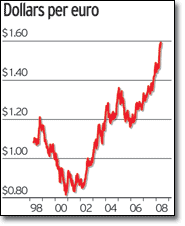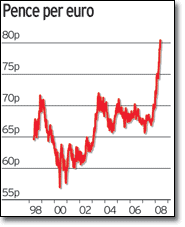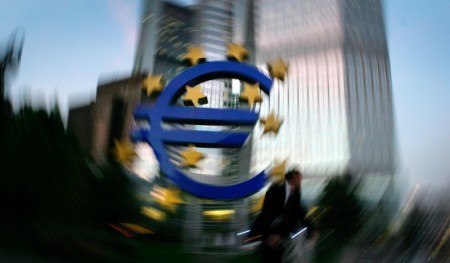
FRANKFURT: The European Central Bank, spooked by soaring prices for food and fuel, raised interest rates Thursday, joining several other central banks in battling a global eruption of inflation.
The quarter-point hike, which the bank had signaled last month, had little initial effect on markets, with the euro treading water against the dollar and stocks staying relatively steady. Central banks in Sweden and Norway also raised rates this week, citing inflation. On Thursday, Indonesia raised its key interest rate for the third time this year, while India raised its key lending rate twice last month.
The Federal Reserve in the United States, where short-term interest rates are only half of those in Europe, has so far declined to join them.
The European Central Bank’s decision deepens a recent divergence in monetary policy across the Atlantic, ending a long period when it tended to follow the course set by the Fed.
But the sharp rise in inflation has put Europe’s bank into a policy bind because it has been accompanied, in recent days, by evidence that the economy here is deteriorating much like that of the United States.
Manufacturing activity in the 15 countries that use the euro shrank in June for the first time in three years, according to a survey of European purchasing managers. In Spain and Ireland, where a collapse in housing prices has magnified the problems, there is a real risk of recession.
Still, the European Central Bank, hewing to its inflation-fighting mandate, pressed on with the expected increase, moving the benchmark rate to 4.25 percent from 4 percent. Among other things, it is intended as a warning to unions not to use higher inflation as a lever to demand hefty wage increases.
_____________________________________________________________________________________
Say goodbye to the Dollar and to Wall Street.
Got Gold and Silver? – The Infinite Unknown
Related articles and videos:
– Dow suffers worst 1st half since ‘70
– Fortis Bank Predicts US Financial Market Meltdown Within Weeks
– Barclays warns of a financial storm as Federal Reserve’s credibility crumbles
– Jim Rogers: Avoid The Dollar At All Costs
– Ron Paul on Iran and Energy June 26, 2008
– Marc Faber: ‘Misleading’ Fed Should Let Banks Fail
_____________________________________________________________________________________
It was not clear, before an afternoon news conference chaired by the bank’s president, Jean-Claude Trichet, whether the rate increase would be a one-time gesture or the start of a cycle of tighter monetary policy.
Several economists said they doubted the bank could tighten much further, given the parlous economic situation.
“The ECB is hiking at a time when confidence is plummeting,” said Thomas Mayer, the chief European economist at Deutsche Bank. “The question is, ‘what do you do when asset prices fall at the same time that consumer prices rise?’ The central bankers seem to have reached the end of the line.”
Read moreECB raises key rate to 4.25%
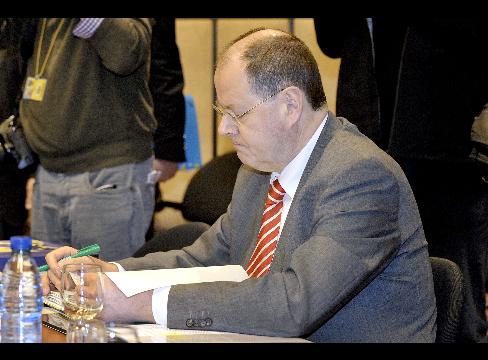
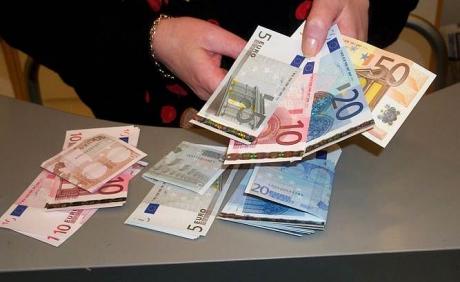
 Butchers and supermarkets were told to remove NI pork products
Butchers and supermarkets were told to remove NI pork products


